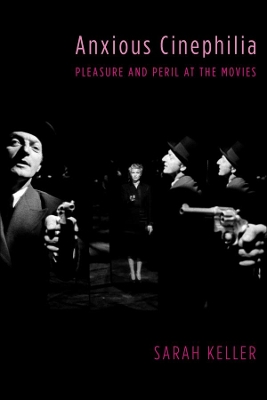Film and Culture
2 total works
The advent of new screening practices and viewing habits in the twenty-first century has spurred a public debate over what it means to be a “cinephile.” In Anxious Cinephilia, Sarah Keller places these competing visions in historical and theoretical perspective, tracing how the love of movies intertwines with anxieties over the content and impermanence of cinematic images.
Keller reframes the history of cinephilia from the earliest days of film through the French New Wave and into the streaming era, arguing that love and fear have shaped the cinematic experience from its earliest days. This anxious love for the cinema marks both institutional practices and personal experiences, from the curation of the moviegoing experience to the creation of community and identity through film festivals to posting on social media. Through a detailed analysis of films and film history, Keller examines how changes in cinema practice and spectatorship create anxiety even as they inspire nostalgia. Anxious Cinephilia offers a new theoretical approach to the relationship between spectator and cinema and reimagines the concept of cinephilia to embrace its diverse forms and its uncertain future.
Keller reframes the history of cinephilia from the earliest days of film through the French New Wave and into the streaming era, arguing that love and fear have shaped the cinematic experience from its earliest days. This anxious love for the cinema marks both institutional practices and personal experiences, from the curation of the moviegoing experience to the creation of community and identity through film festivals to posting on social media. Through a detailed analysis of films and film history, Keller examines how changes in cinema practice and spectatorship create anxiety even as they inspire nostalgia. Anxious Cinephilia offers a new theoretical approach to the relationship between spectator and cinema and reimagines the concept of cinephilia to embrace its diverse forms and its uncertain future.
Maya Deren (1917-1961) was a Russian-born American filmmaker, theorist, poet, and photographer working at the forefront of the American avant-garde in the 1940s and 1950s. Influenced by Jean Cocteau and Marcel Duchamp, she is best known for her seminal film Meshes of the Afternoon (1943), a dream-like experiment with time and symbol, looped narrative and provocative imagery, setting the stage for the twentieth-century's groundbreaking aesthetic movements and films. Maya Deren assesses both the filmmaker's completed work and her numerous unfinished projects, arguing Deren's overarching aesthetic is founded on principles of incompletion, contingency, and openness. Combining the contrasting approaches of documentary, experimental, and creative film, Deren created a wholly original experience for film audiences that disrupted the subjectivity of cinema, its standards of continuity, and its dubious facility with promoting categories of realism. This critical retrospective reflects on the development of Deren's career and the productive tensions she initiated that continue to energize film.

